Dental Implants
Dental implants are the best and most permanent way to replace missing teeth. They have a very high success rate and they look and feel very natural. The process involves a referral to an implants specialist who will evaluate the bone of your jaw to ensure you are a good candidate for the procedure. The implant specialist will then place the implant and allow the site to heal for a time before you return to see Dr. McDonald to place the permanent crown on top of the implant. While implants cannot get cavities, it is still important to maintain regular cleanings as the gums and bone need to be healthy to keep the implant stable. Below are the various ways implants can be used to replace missing teeth.
If you are searching for dental implants in Morgan Hill, please contact McDonald Family Dentistry at 408-779-9335.
Single Tooth Dental Implants
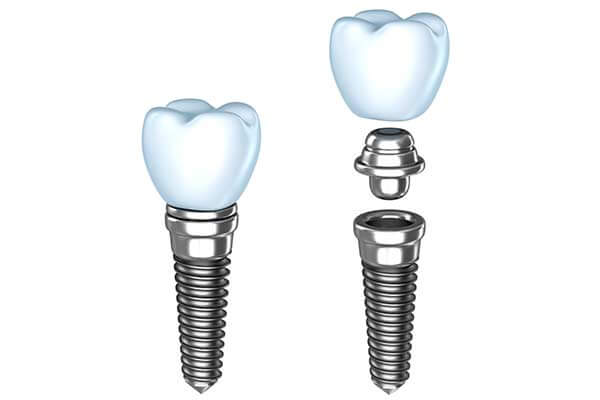
Dental implants replace tooth roots in the mouth. Implants provide a strong foundation for fixed or removable replacement teeth and can aid in the prevention of bone loss in the jaw.
Implant Supported Bridges
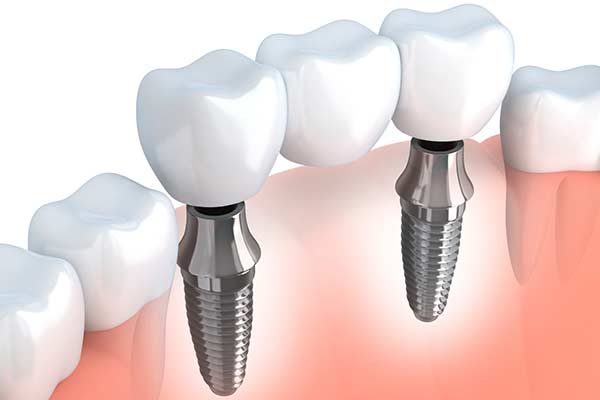
An implant supported bridge is a restorative solution for spaces where three or more adjacent teeth are missing. This restoration typically requires two implants to support the porcelain bridge. The bridge provides a functional and aesthetic replacement for a patient’s natural teeth.
Implant Supported Dentures
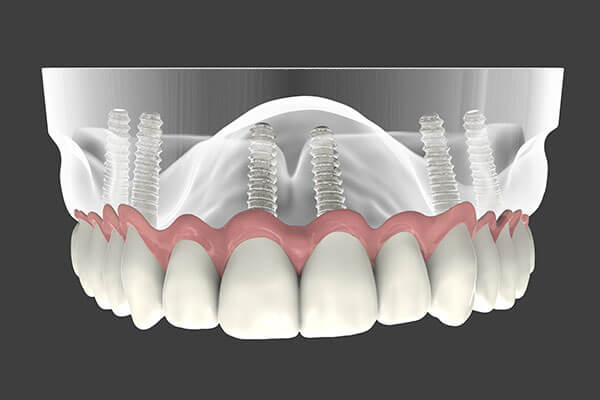
For patients who are missing many or all of their teeth, implant supported dentures may be an alternative to traditional dentures. This solution requires the placement of two or more implants. In order to replace a full arch denture, a minimum of four implants is generally recommended. Eligibility for this solution is dependent upon a number of factors, with jaw bone density being one of the most significant determining factors.
Traditional dentures rely on an acrylic base that sits directly on the gums, held in place by a paste or adhesive. Using implants as supports for dentures allows for a smaller and more comfortable base and less shifting of the prosthesis during use.
Implants can support both full and partial dentures as well as both fixed and removable dentures. If a removable denture is selected, the denture will “snap” on to the implant rather than requiring the use of denture paste or adhesives.
Full Arch with Only Four Implants
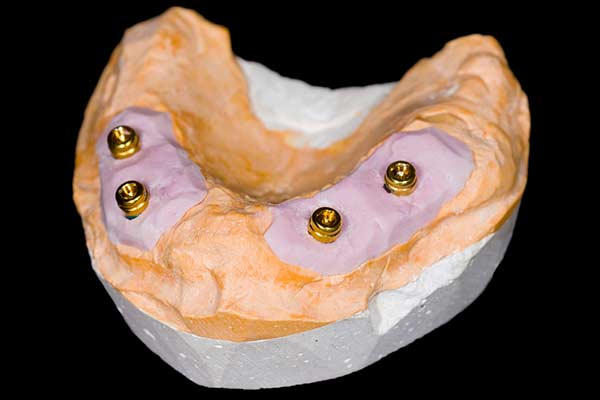
This procedure is a unique implant solution that allows patients with a completely edentulous (toothless) upper or lower arch to replace all of the teeth in that arch using only four implants as anchors.
Mini Dental Implants (MDIs)
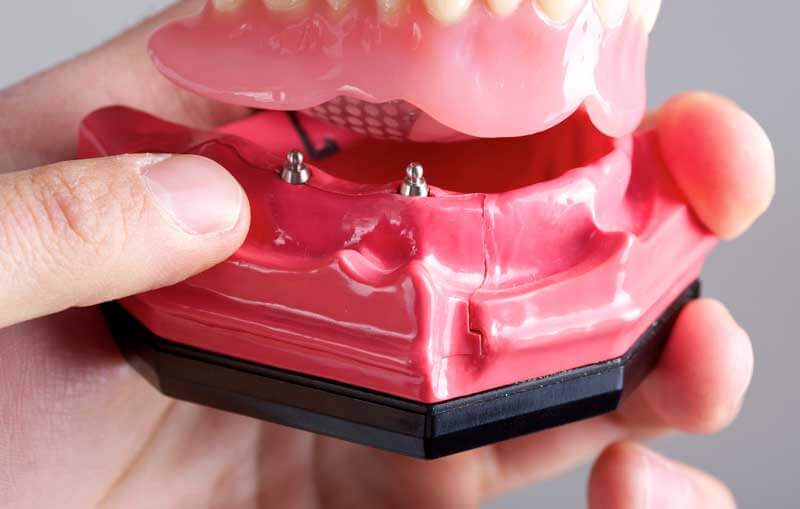
There are times when a full size implant is not a viable option, and in many cases an MDI may be a great solution. Small spaces or inadequate bone mass in the jaw may prevent the use of traditional implants. Mini Dental Implants are similar to regular implants but, as the name suggests, are significantly smaller in diameter. Dental implants typically take 2 visits and require a waiting period of a few months from the time of implant placement to the time the permanent replacement tooth can be placed. The placement of MDIs is minimally invasive, often requiring only local anesthetic and no sutures. For this reason, MDIs can often be placed with the final replacement tooth in one day.
Guided Implant Placement
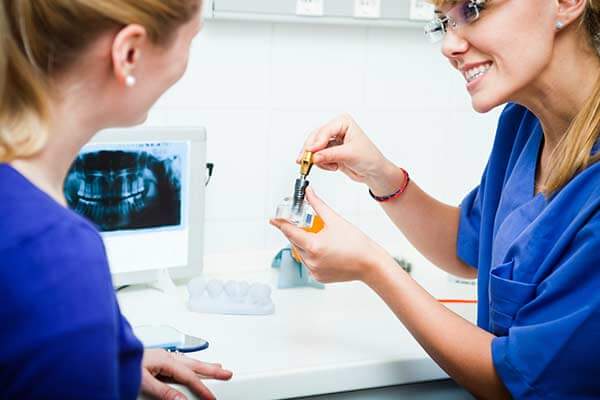
With this technique, specialized software is used to create custom surgical guides. These guides direct the exact location, angle, and depth of each implant placement. The use of the guide increases the accuracy, efficiency, safety, and predictability of the procedure.
The Benefits and Importance of Dental Implants
Want to know more about why you should choose dental implants?
Learn More About the Benefits of Dental Implants